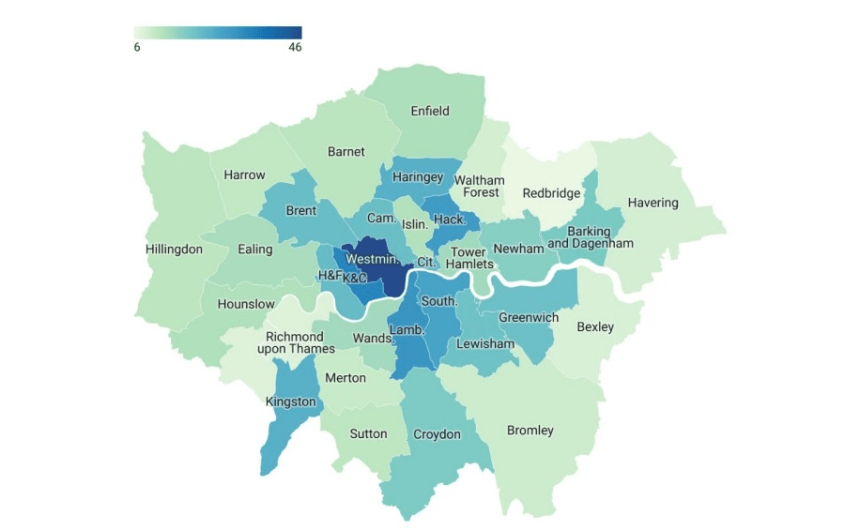London is falling short of meeting Sadiq Khan’s ambitious pledge to end new HIV transmissions in the capital by 2030, a fresh warning from the London Assembly has revealed.
Despite decades of medical advancements and public health progress, a report by the Assembly’s health committee suggests that efforts to reduce HIV cases have hit a plateau, and time is running out.
HIV Progress Stalls in the Capital
While London has made “significant progress” since the height of the HIV crisis in the 1980s, the decline in new diagnoses has now slowed to a concerning crawl.
According to the committee, recent years have seen stagnation, particularly among heterosexual men and women, despite a drop in transmissions among men who have sex with men.
The committee noted stark geographical inequalities, with central boroughs disproportionately affected. Westminster, in particular, recorded the highest number of diagnoses.
In 2023, 980 people were diagnosed with HIV for the first time in London — 691 men and 288 women. That’s a major drop from 2015, when there were 1,977 new diagnoses. But the progress is stalling. Another 563 people were diagnosed last year after initially contracting the virus abroad — almost unchanged from 573 in 2015.
Mayor’s Office Blames Past Cuts
In response, the mayor’s office placed blame squarely on previous Conservative-led governments for slashing public health budgets in real terms.
A spokesman for Sadiq Khan said: “The mayor is proud that London is leading the way in tackling HIV globally despite the previous Government inflicting a real-terms decrease in funding to public health budgets.
“The current Government has committed to commissioning a new HIV action plan and the mayor looks forward to working closely with ministers to help end HIV cases by 2030, as we build a fairer and healthier London for everyone.” Khan is expected to formally respond to the Assembly’s report in due course.
Stronger Action Urged
The Assembly’s report calls for HIV to feature more prominently in the mayor’s upcoming Health Inequalities Strategy. It also pushes for the delayed HIV/AIDS memorial in Store Street, Fitzrovia, to be completed by 2027 — a project originally planned for 2026.
“Reaching the target of ending new HIV cases by 2030 is a formidable challenge. As things stand, London is a long way off reaching this target,” said Labour Assembly member and committee chair Krupesh Hirani.
He stressed that stigma remains a key barrier, preventing many from accessing vital prevention and treatment services.
“We would like to see the mayor take further action by promoting the HIV Confident Charter which aims to tackle HIV-related stigma; ensure that the HIV/AIDS memorial which he funded is unveiled on time and is used to raise awareness about HIV; and by giving greater prominence to HIV in his upcoming Health Inequalities Strategy implementation plan.”
More Testing and PrEP Access Needed
To accelerate progress, the committee also urged the Government to:
- Set annual targets for increased HIV testing.
- Improve access to PrEP (Pre-Exposure Prophylaxis) — especially via community pharmacies and prisons.
- Promote initiatives that reduce stigma and misinformation.
The Department of Health and Social Care responded: “This Government is committed to tackling HIV. Our upcoming HIV action plan will help to achieve our mission of ending new HIV transmissions in England by 2030.
We know there is work to do and we have invested an extra £1.5m to extend the National HIV Prevention Programme, alongside £27m to expand the HIV emergency department opt-out testing scheme.”
London has the tools, medical knowledge, and public will to end new HIV transmissions. But stalled progress and systemic inequalities remain formidable obstacles.
As the clock ticks towards 2030, campaigners and policymakers alike are calling for bold, coordinated action — not just from City Hall, but from Westminster, too. Ending HIV in London isn’t impossible. But right now, it’s still out of reach.






